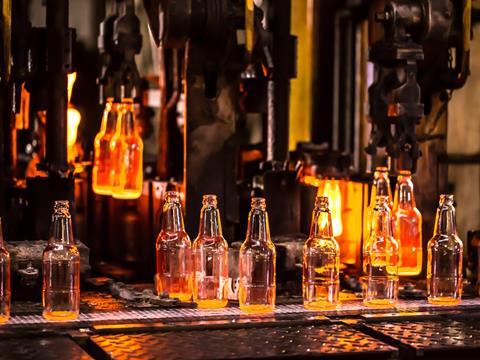
Plug Power is installing five-megawatt electrolysers into Ardagh Glass Limmared AB, Hydro Havrand, and the APEX Group’s respective plants in an effort to produce industrial-scale green hydrogen in glass manufacturing, aluminium recycling, and steel manufacturing processes.
In what is said to be the ‘first ever use’ of industrial-scale green hydrogen in each respective sector, this standardised turnkey system has a reported production capacity of over two tons per day and aims to reduce both site construction costs and the complexity of implementation.
Ardagh Glass Limmared AB anticipates that it will produce 2.1 metric tons of green hydrogen every day by the end of 2023 – a move set to replace a portion of the natural gas used today while lowering overall carbon emissions at the plant. It will also utilise hydroelectric power to generate hydrogen from Plug’s electrolyser in its efforts to produce sustainable glass packaging solutions.
Additionally, Hydro Havrand, a new unit of Norsk Hydro ASA, seeks to close the loop at its aluminium recycling plant in Hoyanger, Norway, with a 5MW Plug electrolyser module set for use by June 2024. In its pursuit of decarbonisation for heavy industry, the company is expected to utilise a similar 2.1 metric tons of green hydrogen per day.
APEX Group, meanwhile, hopes to decarbonise ArcelorMittal’s local blast furnaces in Bremen, Germany, and demonstrate the possibility of producing green steel, alongside its longer-term goal of fully decarbonising the German and wider European steel industries. It is set to install two 5MW electrolyser modules to produce 4.2 metric tons per day of green hydrogen for public utility company SWB by the end of this year.
Each project expects to contribute to the European Union’s wider goal of decarbonising European industries and the mobility sector by producing 10 million metric tons of green hydrogen every year by 2030.
“Plug is breaking new ground with this series of industry firsts that validate our vision to scale the green hydrogen economy,” said Plug CEO Andy Marsh. “We were bold enough to design and build the industry’s first 5MW electrolyser module, and customers are now clambering for its holistic, compact, easy-to-install features.”
Ardagh Group previously signed an agreement with Absolut Vodka last year to produce its vodka bottles at a partly hydrogen energy-fired furnace. This development hopes to contribute towards Absolut’s goal of achieving CO2 neutrality by 2030.
H2 Green Steel also aims to accelerate the decarbonisation of the steel production process by building a large-scale, hydrogen-based, green steel plant in northern Sweden, replacing the coal used at its steel plant with green hydrogen.
Earlier this year, Smurfit Kappa and the HYFLEXPOWER consortium announced the successful introduction of an integrated hydrogen gas turbine demonstrator at Smurfit Kappa’s Saillat paper mill.
If you liked this article, you might also enjoy:
McKinsey on whether or not on-pack sustainability claims affect consumer spending
A deep dive into the most important packaging sustainability trends and solutions














No comments yet